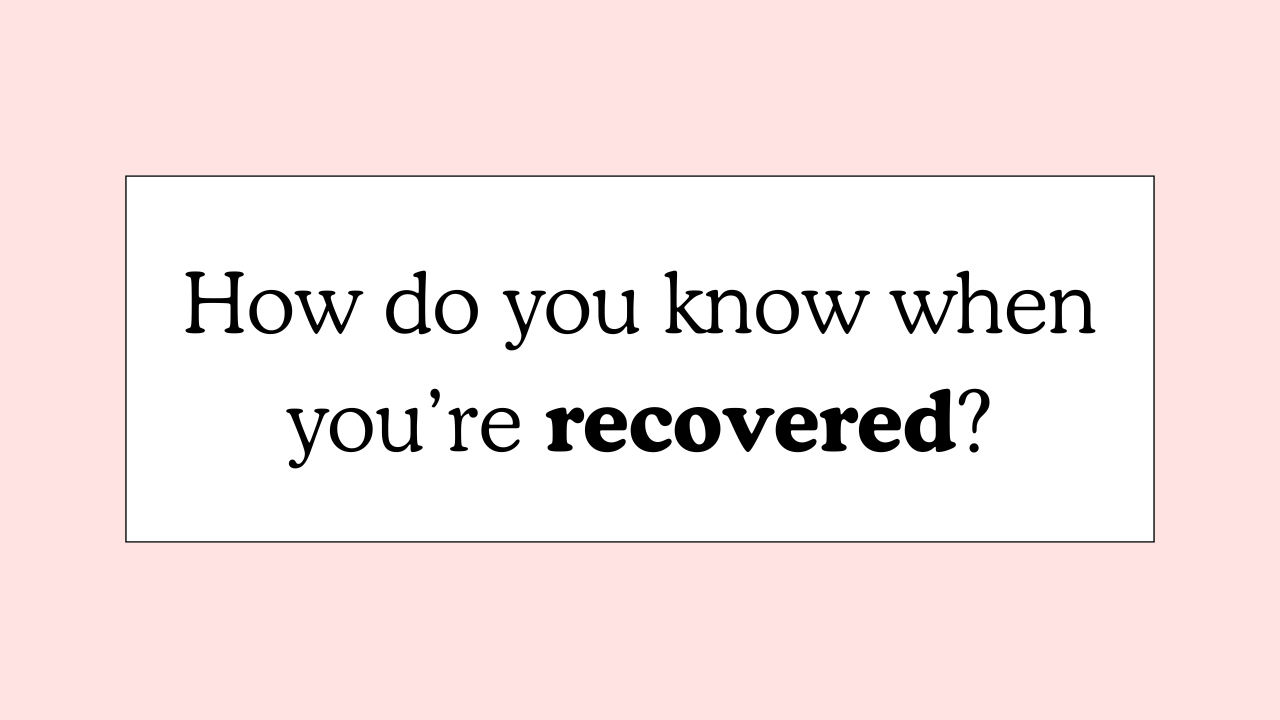How do you know when you’re recovered?
Jul 15, 2025
ED recovery is a lot like learning how to type – you know, the kind of typing you do to write emails, comment on social media posts, and reply to messages.
Wait, whaaat?
To explain what I mean here, allow me to share a little story with you.
When I was 9 years old, we had a special teacher come to our classroom twice a week for “typing lessons.”
I was so excited for these lessons! Why? Because when I used to watch my mom clack away on her laptop, I wanted to be just like her – I wanted to be able to type just as fast.
So when we were given the assignment to type certain sentences – basic sentences, like “My name is Livia” and “I like to play soccer” – and it took me forever to write them, I felt so defeated.
While I masked my feelings in the classroom setting, my insides were boiling with every negative emotion you can think of: rage, impatience, jealousy, fear, hopelessness, desperation, you name it.
I didn’t want to learn how to type – I just wanted to KNOW how to type! And I wanted to know NOW.
But what does this have to do with autism and eating disorder recovery? Let’s get to that part now...
In a recent Existential Autistic Membership call, a member asked “How do you know when you’re recovered?”
Mike’s answer was gold: “You’re recovered when you stop wondering whether or not you’re recovered.”
Here’s the thing, my friend: many of us get “stuck” in quasi recovery (that frustrating middle ground between your ED and true freedom) because we want to know how to recover before taking action.
Instead of typing slowly, pressing the “wrong” keys, and getting those squiggly red lines under your words to inform you of typos, we want to write perfect prose straight off the bat.
No uncertainty, but a 100% guarantee.
A guarantee that mental hunger will REALLY go away.
A guarantee that you can handle the responsibilities of being healthy.
A guarantee that all of this recovery stuff will even be worth it.
You want to skip the growing pains and shortcut the fears – the fear of emptiness, the fear of what’s going to “replace” your eating disorder, the fear of being rejected for being your authentic self.
And boy, do I know how convincing that voice up there is. It tells you that if you just figure out “how” to recover – if you just “know” exactly when you can declare yourself free – well then, piece of cake, right?
Unfortunately, that’s not how the cookie crumbles. (Sorry, I couldn’t resist the food puns! 🍰🍪🤪)
Instead of moving you forward, this idea that you must preemptively know what recovered looks like for you is the trap. For how can you know what recovered looks like for you if you never give yourself the chance to discover your unique experience?
So you wait…
And wait…
And wait…
You spend your days consuming ever more ED recovery content, watching other people’s “What I Eat in a Day” videos, and looking for the “perfect” map out of eating disorder land.
But because the eating disorder is an island, an isolated plane with zero connections to your authentic self, you end up feeling more lost.
So if there’s no map, well then how do you break free from not only the ED, but from recovery itself?
How do you discover your authentic being, the part of you that’s painfully aware of your potential?
You start by typing. You start by pressing one key at a time, forming simple words and sentences. Slowly. At. First.
And as you type more and more, you realize you don’t have to pay as much attention to where you’re placing your fingers. Muscle memory starts to kick in, and your fingers seem to just remember where certain keys are.
Over time, typing becomes second nature. And then one day, you look up from the manuscript you’ve just written and go “Holy shit, I actually did it! I’m recovered from my eating disorder!”
I cannot overstate this my friend: There’s no how-to. There’s only YOU.
Only YOU can write your own story, and my book How to Get Out of Quasi Recovery guides you every step of the way. You can grab your copy, along with the accompanying Discovery Workbook here.
The concepts in these books are the ones I keep coming back to in my coaching calls, my writing, and honestly, my life as a whole. Because these books aren’t really about “getting out of quasi recovery” – they’re about creating a life that you don’t need to find a replacement for.





